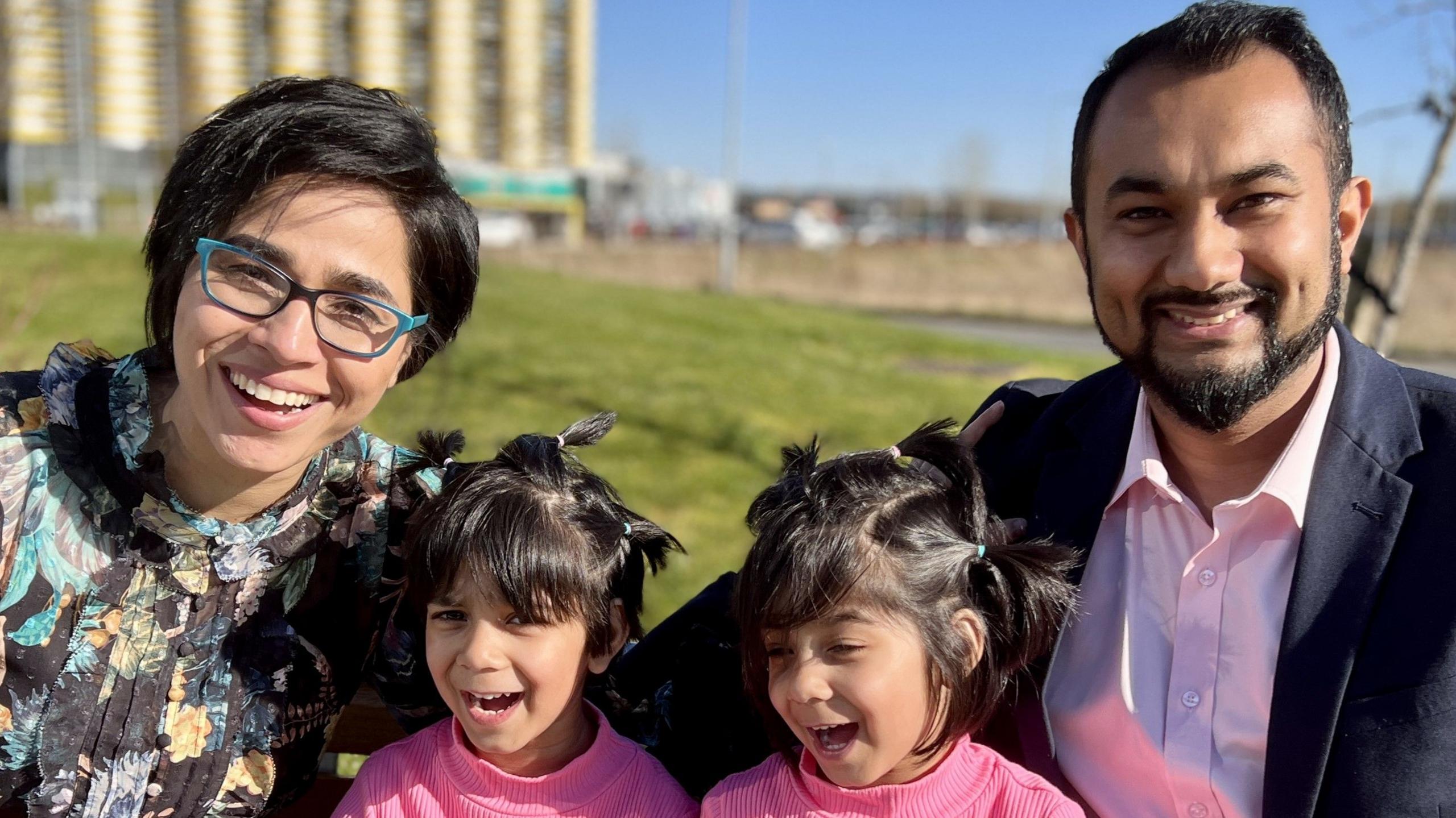'Friend's death fuels my fight against sickle cell'
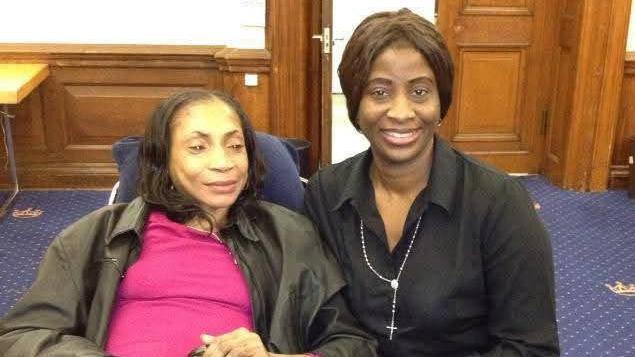
Peace Adetoro (right) said her friend Bunni Fadipe (left) inspired her to campaign for sickle cell disease
- Published
A campaigner whose friend died with sickle cell disease wants to raise awareness of the condition for those with black heritage.
Peace Adetoro has been advocating for greater understanding of the condition since reconnecting with her childhood friend, Bunni Fadipe, who lived with sickle cell disease and died in 2016.
Sickle cell disease is a genetic blood disorder that mainly affects people with African or Caribbean backgrounds, according to the NHS., external
"Even though it affects mostly people of colour, most of them don't really know what it is which I find very strange," Ms Adetoro, of Luton, said.
She admitted she knew little about the condition until she reconnected with her old school friend a few years before her death.
"I found it quite strange because I've never actually met an adult with sickle cell, especially as the sickle cell had damaged her internal organs so she was housebound and I was quite shocked," she explained.
"She told me all about the illness and how it had affected her and then I started to look into sickle cell a bit more and I became a full advocate in 2012."
"All my knowledge of how sickle cell affects people I learned through her."
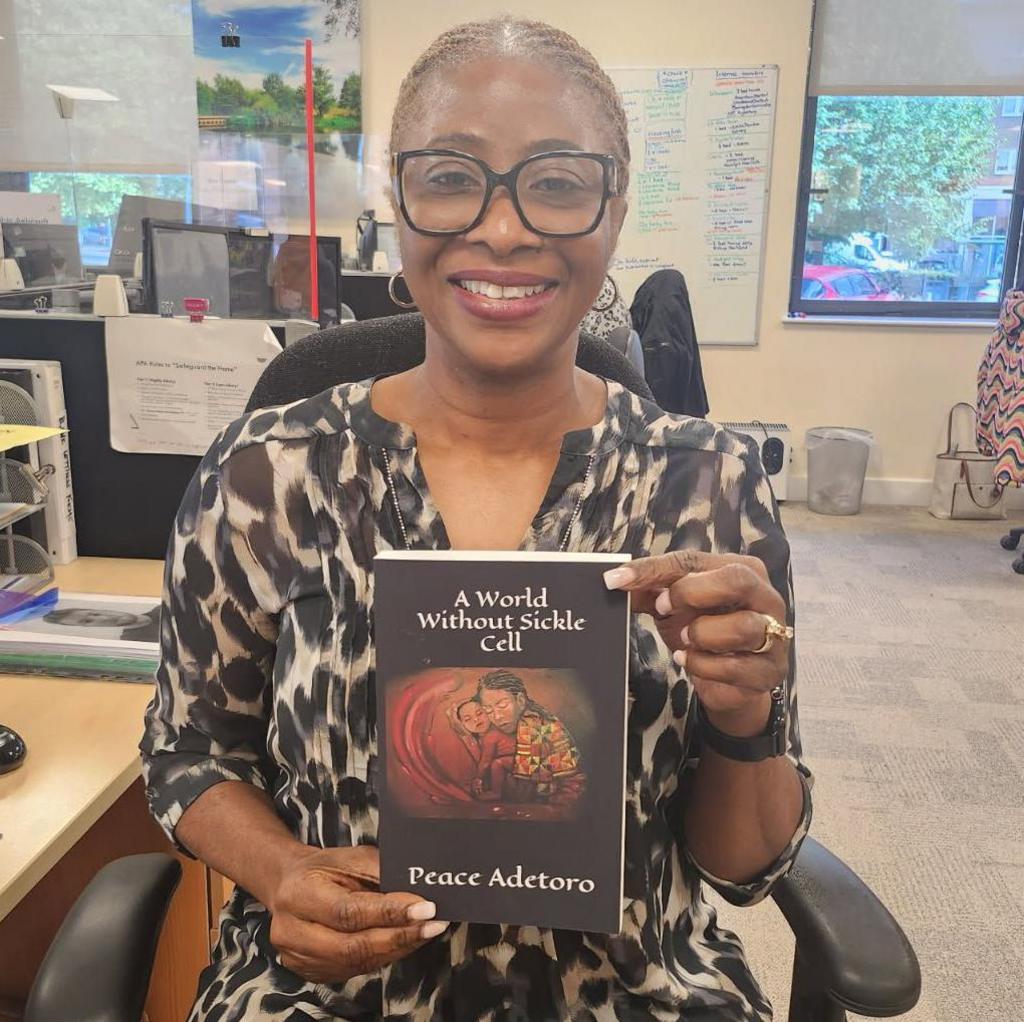
Ms Adetoro used her friend's experiences to write a book
While her friend was being treated at King's Cross Hospital, in London, Ms Adetoro began writing a fictional romance novel to help readers understand the effect of the disease in a more relatable, non-medical way
"Most of the stories I got from from Bunni and I tried to explain to her what I was putting down and she was like 'no, no, don't tell me about it now. I want to read the book.'
"She never got to read the book because she passed before I completed it."
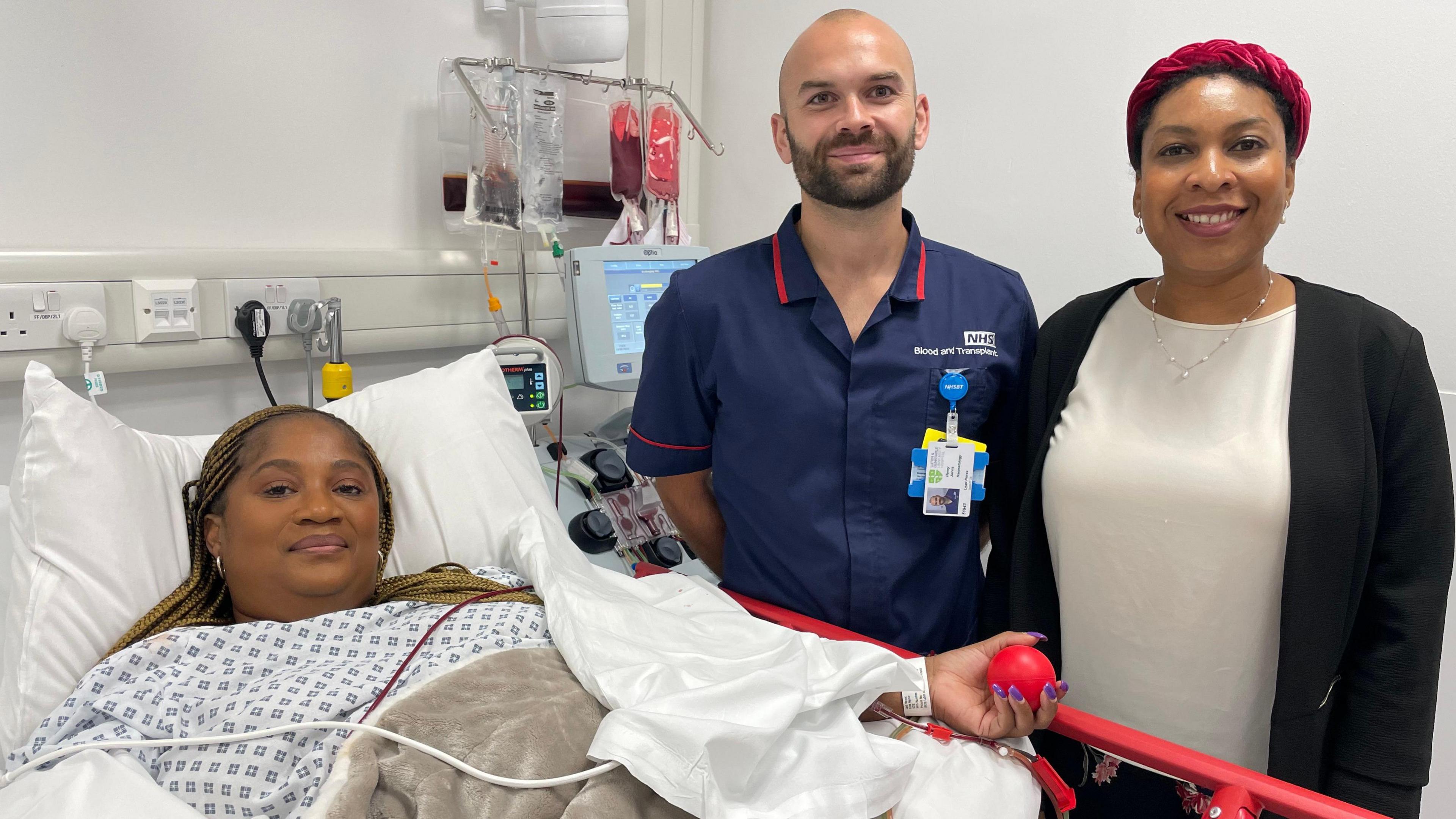
Dr Claire Anderson (right) said more donations are needed
A new transfusion service at Luton and Dunstable University Hospital offers automated red blood cell exchanges, external, allowing patients to receive treatment locally instead of travelling to major centres such as London.
Dr Claire Anderson, consultant haematologist, said blood donations were vital but only 3% of current donors are from black backgrounds.
She said: "We currently would like to recruit more donors, ideally about 12,000 of black heritage.
"On the red blood cells we have special proteins called antigens... I like to think of they're kind of like special ID badges that your immune system recognises.
"In people of black heritage there are some rare antigens and you have a better matched blood if you have blood from someone of your own ethnicity because we can match these ID badges closer and that leads to less complications."
Ms Adetoro said the new service was "very important" for making care more accessible.
Get in touch
Do you have a story suggestion for Beds, Herts & Bucks?
Follow Beds, Herts and Bucks news on BBC Sounds, Facebook, external, Instagram, external and X, external.
- Published8 September
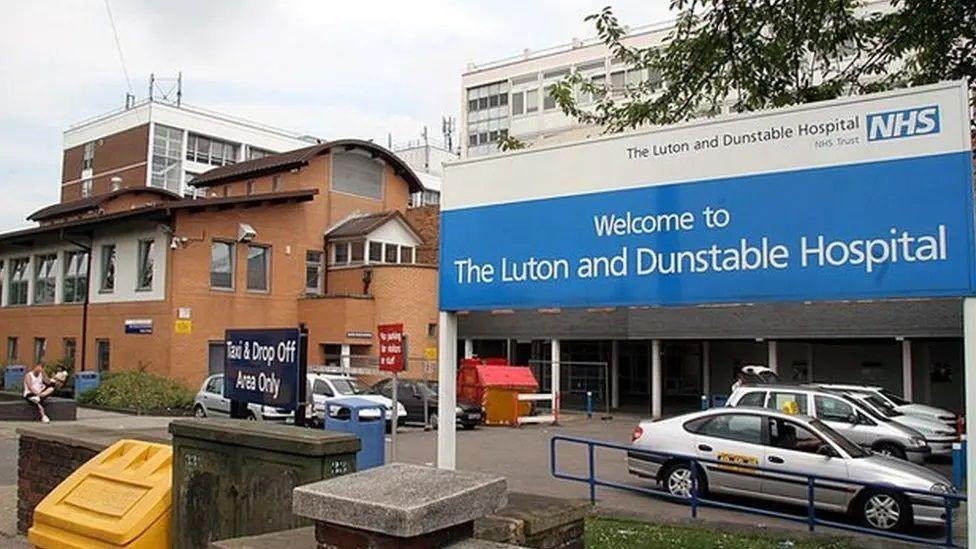
- Published28 June
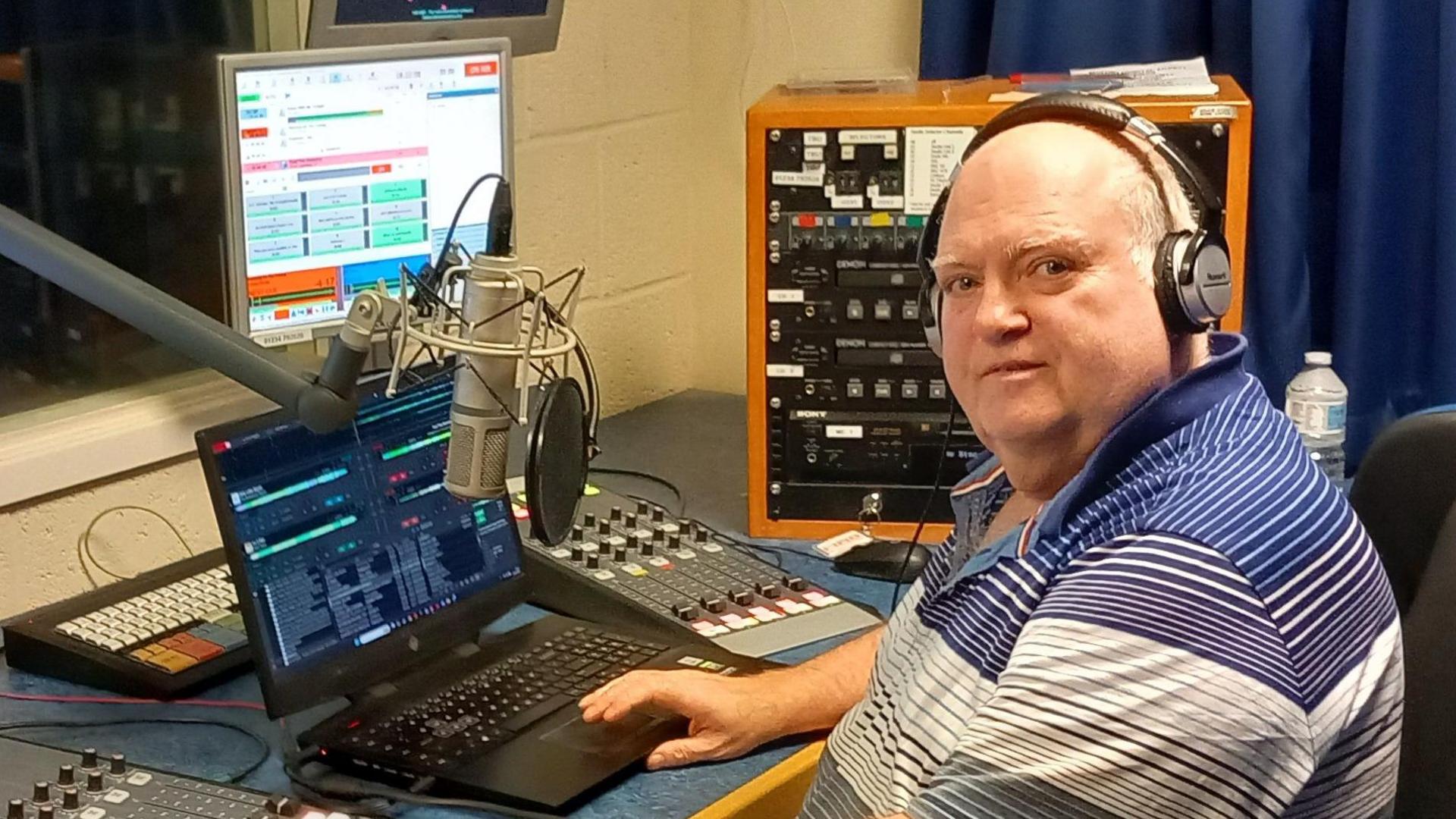
- Published25 March
